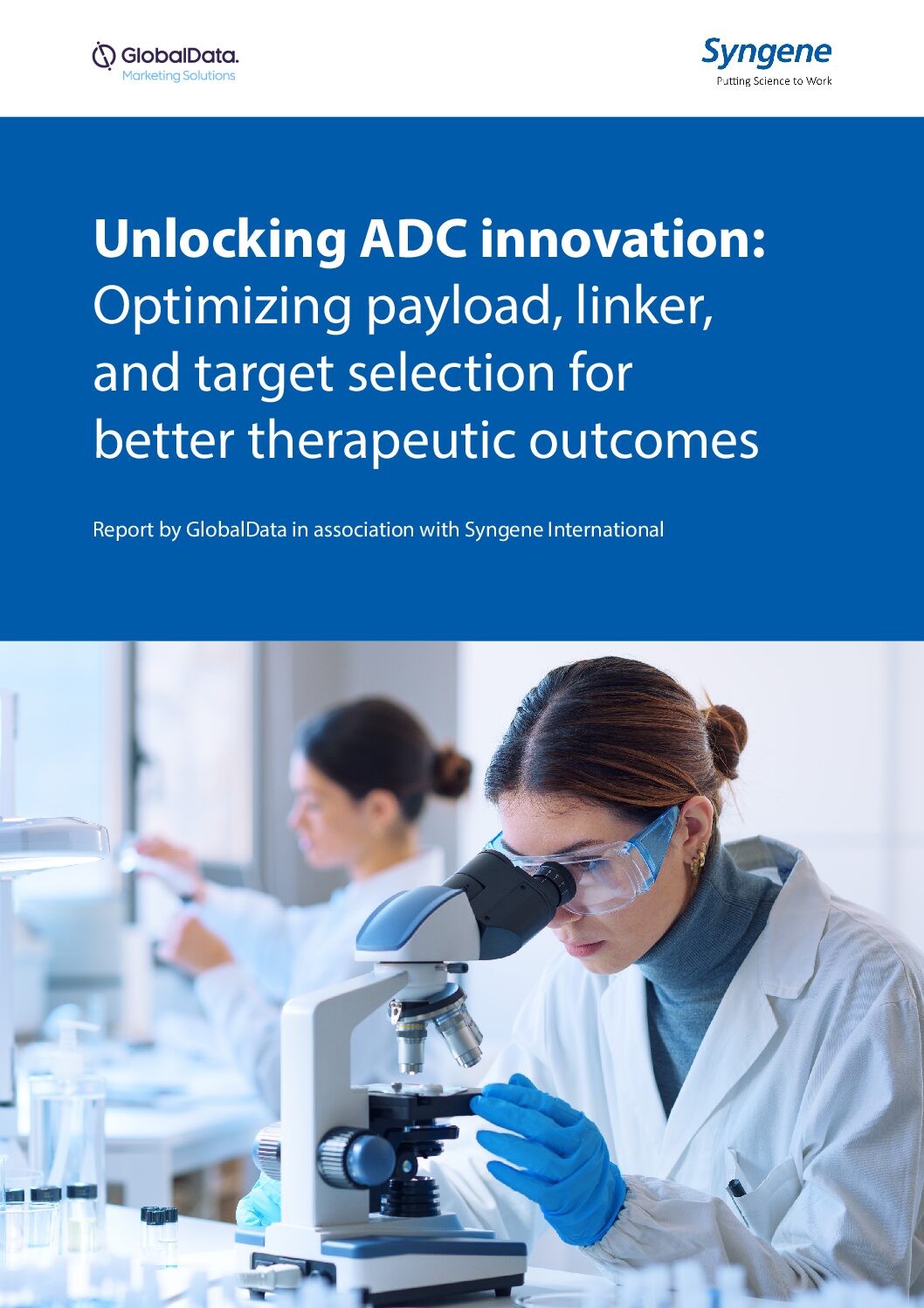

Genmab’s antibody drug conjugate (ADC) rinatabart sesutecan (Rina-S) demonstrated positive efficacy in treating patients with endometrial cancer, as investor confidence grows towards the drug’s blockbuster future.
Given as a monotherapy every three weeks, Rina-S achieved a 50% confirmed objective response rate (ORR), including two complete responses (CR), in heavily pre-treated advanced endometrial cancer patients. These patients had experienced disease progression despite receiving platinum-based chemotherapy and an immune checkpoint inhibitor, with investigators conducing a median on-study follow-up of 7.7 months.

US Tariffs are shifting - will you react or anticipate?
Don’t let policy changes catch you off guard. Stay proactive with real-time data and expert analysis.
By GlobalDataThe data, part of the Phase I/II RAINFOL-01 trial (NCT05579366), was presented by Genmab at the at the 2025 American Society of Clinical Oncology (ASCO) Annual Meeting, taking place from 30 May to 3 June in Chicago, Illinois.
“We believe the clinical data with Rina-S continues to be very supportive of advancement into pivotal studies in indications declared to date. We have increased confidence in the blockbuster potential of Rina-S,” commented William Blair analyst Matt Phipps in an equity research note.
Shares in Genmab opened 0.5% higher at market open following the ASCO presentation on 2 June, though increases were largely offset by a share buyback update by the company.
The positive data for Rina-S continues to validate Genmab’s $1.8bn acquisition of ProfoundBio in 2024, a deal wherein the drug had particular emphasis placed it on by the Danish big pharma company.
Genmab’s Rina-S update in endometrial cancer represents roughly four additional of follow-up versus the initial abstract release in late May. The ORR and two CRs were recorded in 22 patients taking the 100 mg/m2 dose. The pharma company also reported that median duration of response (DOR) was not reached after a median follow-up of 7.7 months. A higher dose 120 mg/m2 arm led to an ORR of 47.1%.
Serious treatment emergent adverse events (TEAEs) occurred in 31.8% of patients on the 100mg/m2 dose, with 50% recorded in patients taking Rina-S at 120 mg/m2. The higher-dose group also included two fatal TEAEs, though only one was determined as linked to Genmab’s drug.
“Regarding safety, it is encouraging that no signs of ocular toxicity, neuropathy, or interstitial lung disease were observed in the study,” Phipps added.
The ADC market was valued at $8.6bn in 2023, with it forecast to exceed $45bn by 2030, according to analysis by GlobalData. Part of the market’s potential is its increased safety over immunotherapies, though ocular toxicity, neuropathy, and interstitial lung disease have become frequent adverse events associated with ADC administration.
Immunotherapies approved for endometrial cancer include MSD’s Keytruda (pembrolizumab) AstraZeneca’s Imfinzi (durvalumab), and Jemperli (dostarlimab). There are no currentlyapproved ADCs for endometrial cancer.
On the back of Rina-S’s efficacy and safety data, Genmab will progress with evaluating 100 mg/m2 in the ongoing Phase II trial, with a Phase III trial planned for a later date.
The RAINFOL-01 study consists of five parts, ranging from monotherapy, combination, and dose-expansion cohorts, among others. The trial is evaluating the safety and efficacy of Rina-S in patients with selected locally advanced and/or metastatic solid tumours, which includes endometrial cancer, epithelial ovarian cancer, and breast cancer. Non-small cell lung cancer (NSCLC) and mesothelioma are also included as therapeutic areas in the non-randomised trial that aims to enrol 529 patients in total.
As detailed by Matt Phipps, on an investor call Genmab disclosed plans to initiate a Phase III study evaluating Rina-S in ovarian cancer, along with a Phase II study in NSCLC.
ADC content on Pharmaceutical Technology (Or Clinical Trials Arena) is supported by Syngene. Editorial content is independently produced and follows the highest standards of journalistic integrity. Topic sponsors are not involved in the creation of editorial content.






